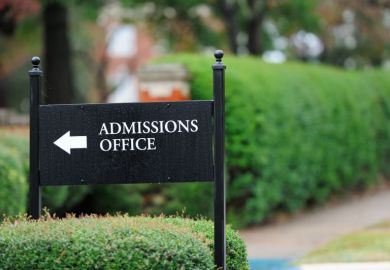Exam results in Scotland have dropped significantly following the return of national testing put on hold during the pandemic.
In an early indication of how England’s A-level results could shape up when they are announced next week, the Scottish government announced that A to C pass rates for examinations this year are well down on 2020 and 2021 levels, when results were based on teachers’ predictions and coursework.
According to the Scottish Qualifications Authority (SQA) results for almost 138,000 pupils, which were published on 9 August, the Higher pass rate was 79.9 per cent this year compared with 89.3 per cent in 2020 and 87.3 per cent in 2021, while the Advanced Higher pass rate was 81.3 per cent, down from 93.1 per cent in 2020 and 90.2 per cent in 2021.
Some 80.8 per cent achieved a National 5 pass in 2022, down from 89 per cent in 2020 and 85.8 per cent in 2021.
While lower than the record-high pass rates of the past two years, when exams were cancelled as part of Covid mitigation measures, exam scores are still higher than in 2019, the SQA said.
The overall percentage of A grades for Highers (34.2 per cent) is also higher than 2019, when exams were last held, but much lower than in 2021 (48 per cent) when teacher-predicted grades saw more than 80 per cent of entries in some subjects gain top marks.
The drop-off in top marks is likely to be welcomed by academically selective universities in England and Wales if the trend is replicated south of the border. In 2020 and 2021 many Russell Group universities struggled to find space for offer-holders, despite massively expanding their intakes, after many more students achieved top marks in 2020 and 2021 than in previous years.
Scotland’s education secretary Shirley-Anne Somerville described this year’s exam figures as “one of the strongest ever sets of results for any exam year, which is particularly impressive given the significant challenges learners have faced as a result of the pandemic”.
“Although 2022 saw a return to exams, it was not a return to normality,” she added, stating that the “approach to exams reflected the disruption to teaching and learning that young people faced and a wide-ranging package of support and modifications was put in place”.
“I am confident that the approach, which was informed by views from across the education system, as well as learners, has delivered a credible, consistent and fair set of results for our young people.”
Register to continue
Why register?
- Registration is free and only takes a moment
- Once registered, you can read 3 articles a month
- Sign up for our newsletter
Subscribe
Or subscribe for unlimited access to:
- Unlimited access to news, views, insights & reviews
- Digital editions
- Digital access to THE’s university and college rankings analysis
Already registered or a current subscriber? Login








